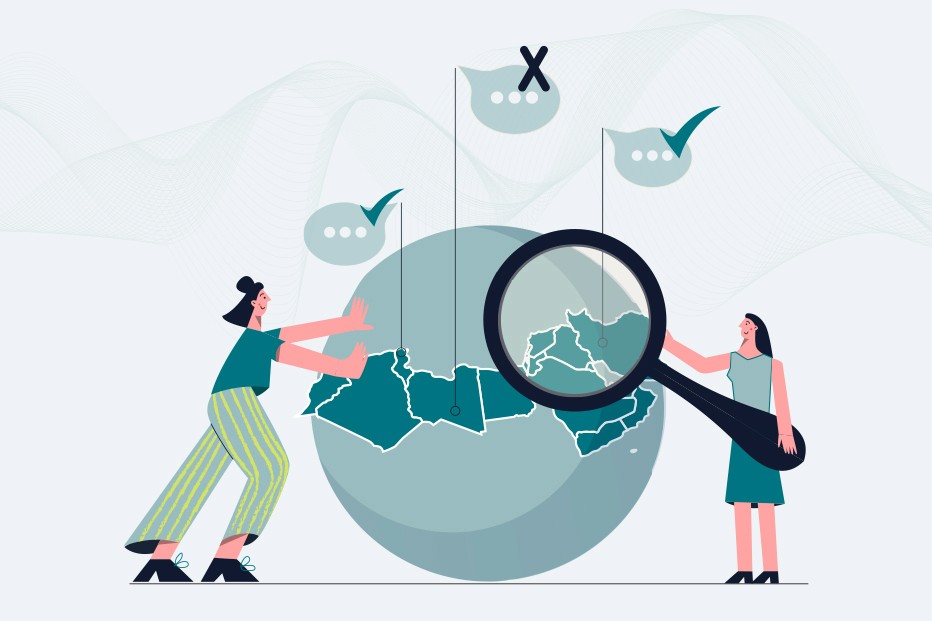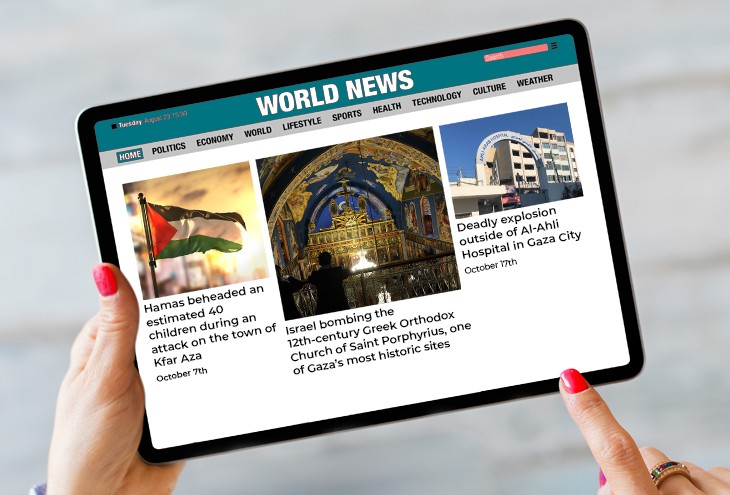Blogs
Fact-checking
Gender stereotypes in fact-checking: when will it end?
Lyne Mneimneh
May 23, 2023
Historically, the field of journalism has been dominated by men, and women have faced numerous barriers to entry and advancement in the industry. These barriers include systemic biases, discriminatory hiring practices, and workplace cultures that are not inclusive of females. In recent years, however, there has been growing recognition of the significant role that women play in the journalism and fact-checking domain.
According to a report by the International Women's Media Foundation, women make up 41% of newsroom employees worldwide. Moreover, the percentage of women among the top editors has grown from 22% in 2020 to 24% in 2021, a Reuters Institute factsheet confirms.
This indicates a gradual shift toward a more diverse and inclusive newsroom environment that values women's contributions, as they can offer fresh perspectives on a variety of topics. They can be more successful in reaching out to other females who may be uncomfortable discussing personal or private issues with a male interviewer, and are seen as more sensitive and empathetic.
This article delves into the journeys of three Arab women in the world of fact-checking, tracing their challenges, experiences and achievements. By highlighting their stories, it gives insight into the reality of the fact-checking profession and an understanding of how these women have made a significant impact in the field.
Gender-specific threats to women journalists and fact checkers
Fatima Bani Ahmad, a freelance Jordanian fact-checker who started her career in 2020 amid the Covid-19 pandemic, considers fact-checking a “relatively easy” job for women, as she explains that it can be done from home. However, despite its convenience, this line of work poses significant digital security threats for women.
“We use social media to complete our work, which renders us vulnerable to attacks from other social media users, particularly bots and so-called digital armies,” she says, explaining that these attacks can include online harassment, stalking and doxing. Indeed, nearly three quarters of 901 women-identifying journalists surveyed in a 2022 UNESCO-ICFJ global study said they had experienced online violence in the course of their work. Threats of physical violence, including death threats, were identified by 25% of the survey respondents, and sexual violence was identified by 18%.
Fatima highlights the alarming risk of women's accounts being hacked, or their personal information and pictures being used for “inappropriate purposes.” Global examples show that image-based abuse can include publishing stolen images without permission, manipulated photos or videos, or fake images showing the journalist/fact-checker naked or having sex. In the UNESCO-ICFJ study, 15% of the women survey respondents reported experiencing such forms of abuse.
This can deter women from considering a career in fact-checking, as the danger is perceived as risky to their reputation and safety. To combat this issue, Fatima emphasises the need for educational training programs for women in fact-checking to enhance their digital safety. By equipping women with the necessary knowledge and skills, they can better protect themselves from digital attacks and prevent their personal information from being misused.
Female labour force participation in the Middle East
Meanwhile, Bayan Hamdan, currently working as a fact-checker with Misbar, faces another type of challenge. Although she comes from an engineering academic background, she found the field of fact-checking to be “way more interesting” and fulfilling. Her main motivation for joining the field in 2019 was not only her passion for the work, but also her desire to prevent those close to her from being deceived and duped by false information. In fact, her family and friends now rely on her to verify the accuracy of news they receive, which she considers her “greatest accomplishment.”
This responsibility has made her work more meaningful. However, getting to this point hasn’t been easy, as she has had to overcome the obstacles to labour force participation that many other women in the region also face. Indeed, according to the International Labour Organization, women in the Middle East and North Africa (MENA) region face some of the lowest rates of labour force participation in the world, with only 21% of women aged 15 and above participating in the workforce. This is significantly lower than the global average of 47%. Numerous factors contribute to this situation, such as societal and cultural beliefs regarding women’s employment, obstacles created by legal and institutional structures, as well as inadequate opportunities for education and skill-building.
“I recently got married, and now if I am under pressure at work, the first thing I am advised is to quit, since I am not ’obliged to work,’” Bayan says, “This makes me wonder if the same thing would have happened if a male had been in my position."
Instead of discouraging women from working, Bayan suggests that society ought to be doing something different, including “pushing young women to follow their dreams to go into the field of fact-checking, as it is a very promising one.” On a personal level, she acknowledges the importance of having a supportive network of people in her life to help her navigate the challenges of her work as a fact-checker. “It is important to surround yourself with people who constantly remind you of the significance of the work you do,” she says. “I forget all what I've been through when I see the pride on my husband's and parents' faces.”
Women leading the fact-checking space in Tunisia
As for Arwa Kooli, editor in Chief of the TuniFact platform, neither her nor her colleagues have experienced personal harassment while performing their duties. Instead, people tend to criticise the platform and the work they do, rather than targeting any specific individuals working for the platform. She adds that not everyone appreciates their work as fact-checkers. There are occasions when people prefer to live in a comfortable illusion rather than face the truth. But despite this, she believes firmly that their mission is crucially important.
She explains that in Tunisia, the journalism field, including fact-checking, is dominated by women. Consequently, female journalists outnumber men in all media organisations except private TV stations and print media. Despite that, she mentions a lack of representation of women in decision-making positions, which does not exceed 11% in Tunisia.
Additionally, Arwa tells Dalil that sometimes women are told not to pursue a certain subject because the matter could be too “sensitive” for a woman to handle. This is due to patriarchal gender stereotypes, which still hold strong in the region and encourage the incorrect view that women have no business ‘meddling’ in areas where major decisions (i.e. politics or business) are taken. Often, women journalists are not taken as seriously as men when it comes to certain topics, and as a result are denied the opportunity to cover “hard news” topics such as foreign affairs, crime and economics. They are instead mostly allocated to cover entertainment features.
Conclusion
Recognising and addressing each challenge that women in the journalism and fact-checking field encounter is crucial if there is to be an environment that is fair and inclusive, irrespective of gender. By addressing these issues, a more diverse fact-checking community can be created. Contributions by both men and women are essential so that they can work together to combat fake news and deliver more accurate stories to the masses.










